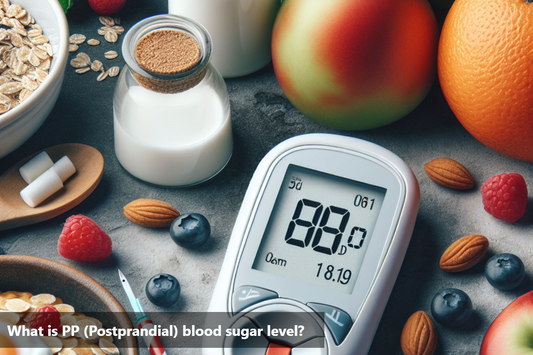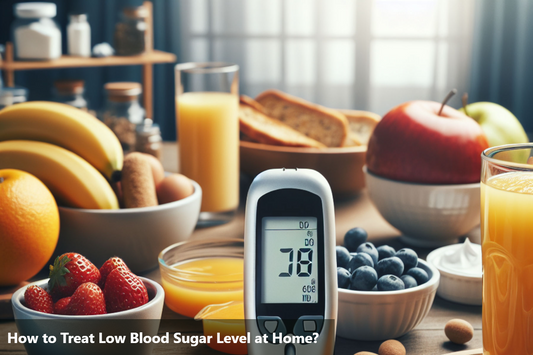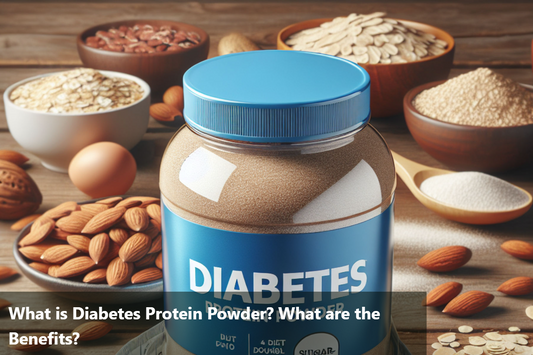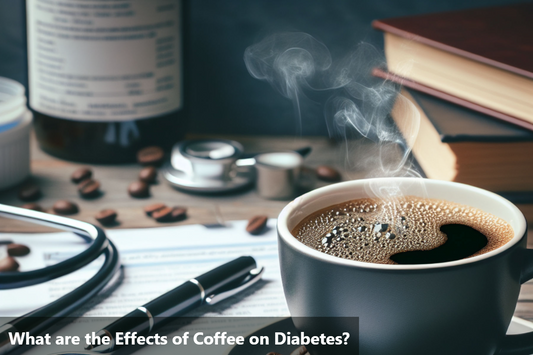Low sugar, also known as hypoglycemia, refers to abnormally low glucose levels in the blood. It's important to recognize symptoms promptly to prevent complications. Hypoglycemia often occurs in individuals with diabetes who use insulin or other blood sugar-lowering medications. Symptoms include shakiness, sweating, dizziness, and confusion. Severe cases can lead to seizures, unconsciousness, or coma. Knowing these signs is crucial for managing the condition and reducing risks associated with untreated hypoglycemia.
Common Symptoms of Low Sugar
Low blood sugar, also known as hypoglycemia, can cause a variety of symptoms, which can vary in severity depending on how low the blood sugar level drops and how quickly it drops. Here are common symptoms of low blood sugar:
-
Shakiness or Trembling: Feeling shaky or trembling, especially in the hands.
-
Sweating: Profuse sweating, even in cool environments.
-
Paleness: Skin may become pale or clammy.
-
Hunger: Intense feelings of hunger or cravings for sugary foods.
-
Rapid Heartbeat: Heart palpitations or a racing heartbeat.
-
Confusion or Difficulty Concentrating: Mental fog, confusion, difficulty focusing, or feeling mentally "fuzzy."
-
Irritability or Mood Changes: Sudden changes in mood, irritability, agitation, or mood swings.
-
Dizziness or Lightheadedness: Feeling dizzy or lightheaded, sometimes to the point of feeling faint.
-
Headache: Headaches or migraines, which can range from mild to severe.
-
Weakness or Fatigue: Feeling weak, tired, or fatigued, with a lack of energy or motivation.
-
Blurred Vision: Visual disturbances, such as blurry vision or difficulty focusing.
-
Nausea or Vomiting: Feelings of nausea or actual vomiting may occur, although this is less common.
-
Anxiety or Panic: Feelings of anxiety, nervousness, or panic attacks.
-
Numbness or Tingling: Numbness or tingling sensations, particularly around the lips or extremities.
-
Behavioral Changes: Unusual behavior, such as slurred speech, clumsiness, or difficulty walking.
Less Common Symptoms of Low Sugar
-
Severe Confusion: In some cases, low blood sugar can lead to severe confusion or disorientation, making it difficult for the individual to understand their surroundings or communicate effectively.
-
Seizures: Seizures can occur in severe cases of hypoglycemia, particularly if blood sugar levels drop very low. These seizures may involve convulsions, loss of consciousness, and muscle stiffness.
-
Loss of Coordination: Low blood sugar can affect coordination and balance, leading to clumsiness, difficulty walking, or loss of motor control.
-
Visual Disturbances: Some individuals may experience visual disturbances during hypoglycemia, such as tunnel vision, double vision, or temporary blindness.
-
Sudden Mood Changes: While mood swings and irritability are common symptoms of low blood sugar, some individuals may experience sudden and extreme mood changes, such as uncontrollable crying or laughter.
-
Speech Difficulties: Low blood sugar can affect speech and language abilities, leading to slurred speech, difficulty forming words, or difficulty understanding spoken language.
-
Unconsciousness: In severe cases of hypoglycemia, individuals may lose consciousness or become unresponsive. This is a medical emergency and requires immediate treatment.
Severe Symptoms of Low Sugar
Severe symptoms of low blood sugar (hypoglycemia) indicate a medical emergency and require immediate attention. These symptoms can be life-threatening and may include:
-
Loss of Consciousness: Severe hypoglycemia can cause loss of consciousness or coma. The individual may become unresponsive and unable to awaken.
-
Seizures: In some cases, low blood sugar can trigger seizures, which involve uncontrolled muscle spasms, convulsions, and loss of consciousness.
-
Confusion or Disorientation: Severe hypoglycemia can lead to extreme confusion, disorientation, or delirium. The individual may not recognize their surroundings or be able to communicate effectively.
-
Difficulty Breathing: Hypoglycemia may cause shallow or irregular breathing patterns. In severe cases, breathing may become labored or difficult.
-
Pale or Bluish Skin: The skin may appear pale, clammy, or bluish in color due to decreased oxygenation and circulation.
-
Weak or Rapid Pulse: The pulse may become weak, rapid, or irregular as the body attempts to compensate for low blood sugar levels.
-
Extreme Weakness or Fatigue: Severe hypoglycemia can cause extreme weakness, fatigue, or lethargy, making it difficult for the individual to move or respond.
-
Inability to Swallow: Some individuals may experience difficulty swallowing or choking sensations during severe hypoglycemia.
-
Loss of Bladder or Bowel Control: In rare cases, severe hypoglycemia may cause loss of bladder or bowel control.
-
Brain Damage or Death: If left untreated, severe hypoglycemia can lead to permanent brain damage or death. This is a rare but serious complication of untreated hypoglycemia.
Bottom Line
Understanding the symptoms of low sugar levels, also known as hypoglycemia, is vital for maintaining health. Common signs include shakiness, sweating, confusion, and irritability, signaling the need for intervention. Dizziness and weakness are less common but important indicators of glucose levels. Severe symptoms like seizures, unconsciousness, and coma require urgent medical attention. Untreated hypoglycemia can have serious consequences, affecting daily functioning and posing life-threatening risks. Identifying low blood sugar symptoms allows prompt actions like consuming glucose-rich foods or seeking medical help. Recognizing these signs is crucial for managing hypoglycemia and ensuring well-being.
This Blog post is an initiative by DiabeSmart, to provide accurate and Nutritionist / Doctor approved information related to Diabetes. DiabeSmart is India's first Food brand designed specifically for Diabetics, that has been clinically tested on Diabetics and Pre-Diabetics to deliver 55% - 70% lower Sugar spikes. DiabeSmart is part of Lo! Foods - India's leading brand for Everyday Functional Health foods.















